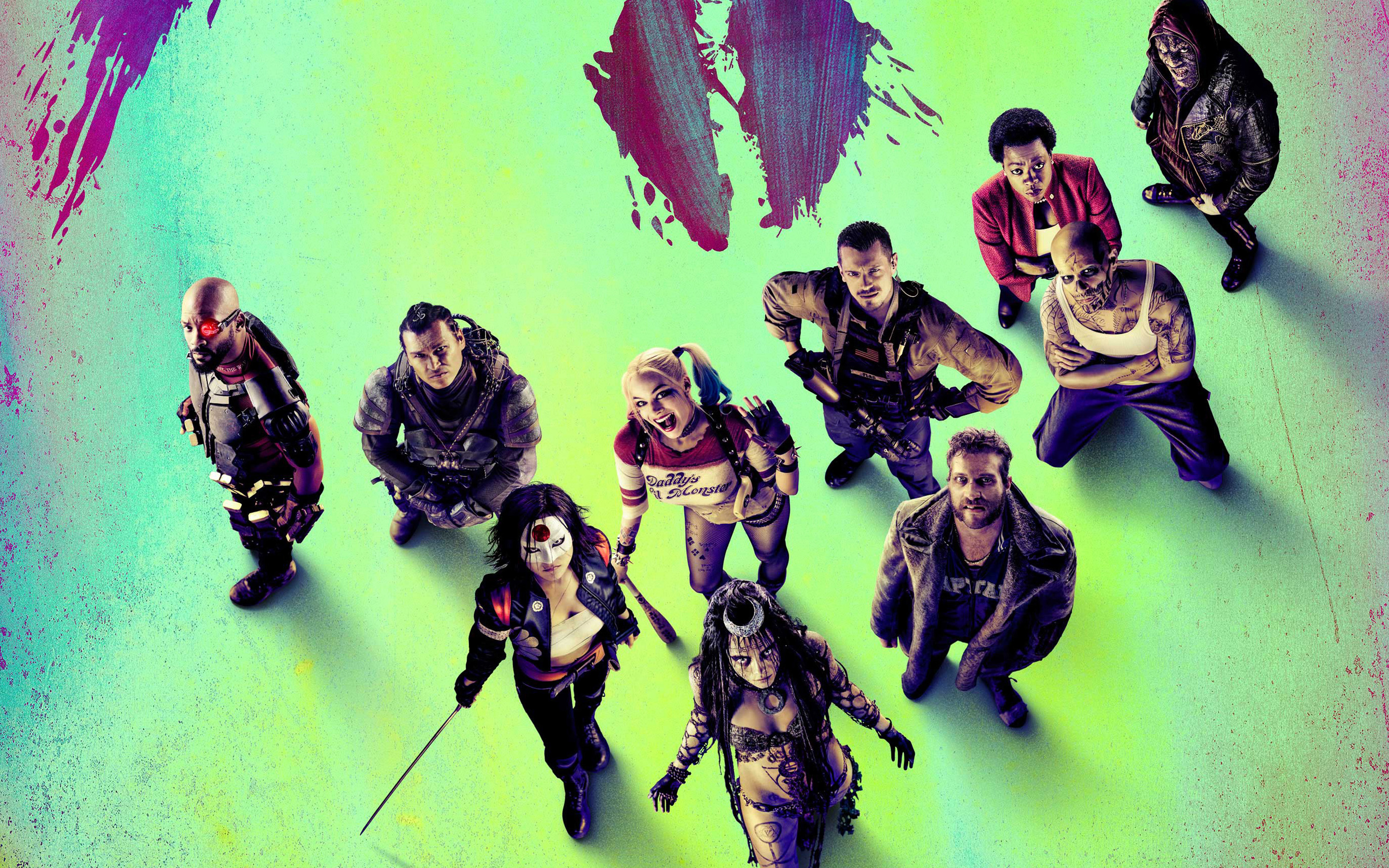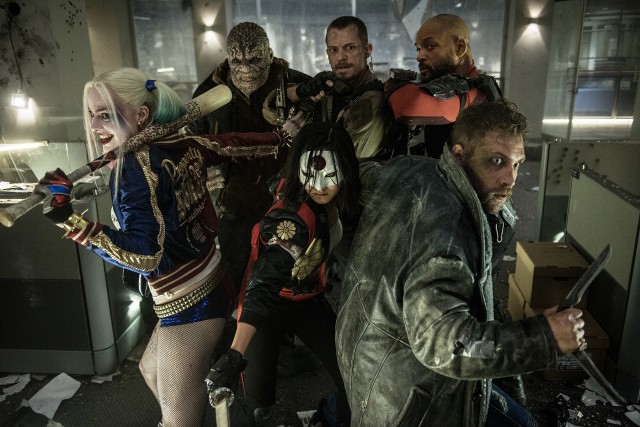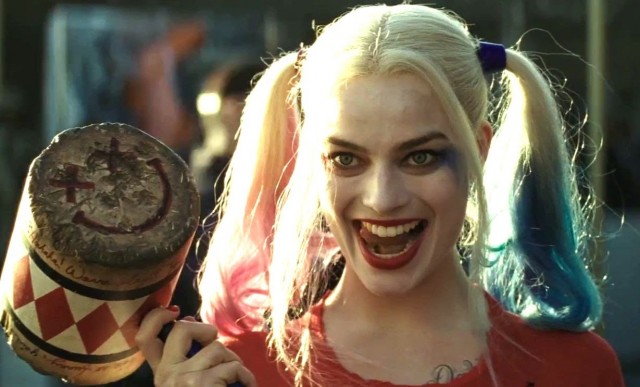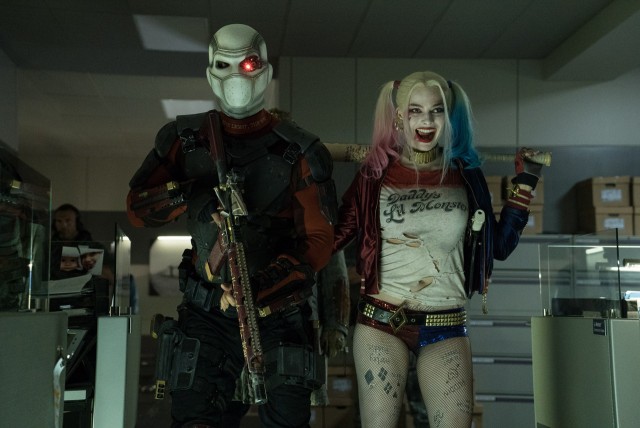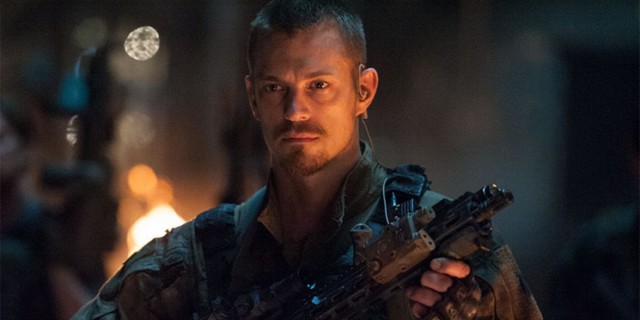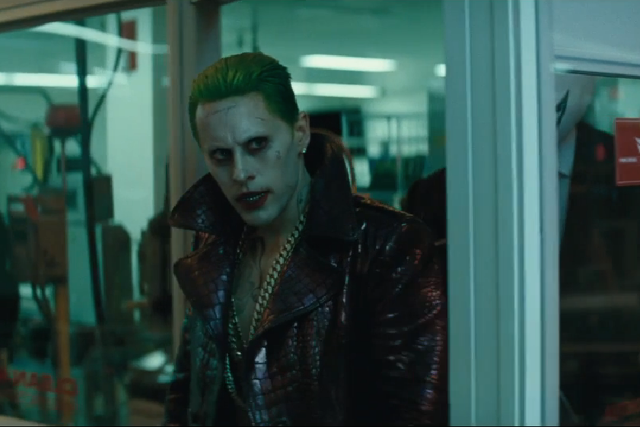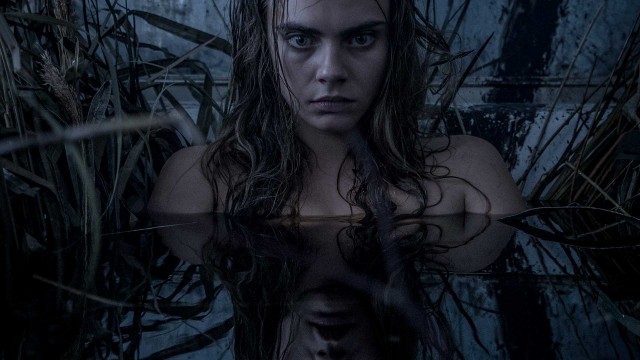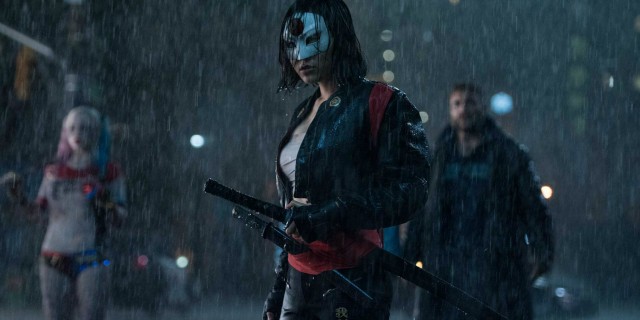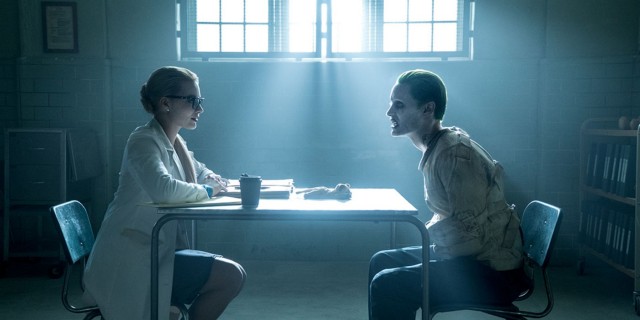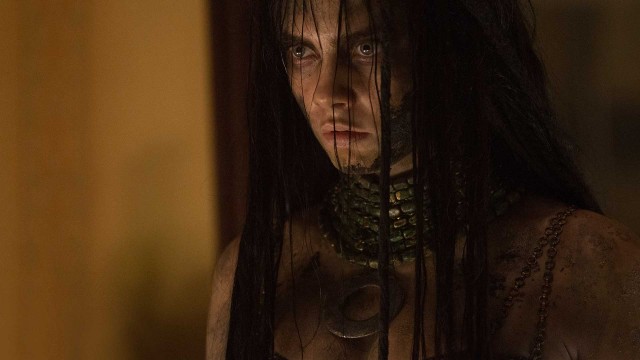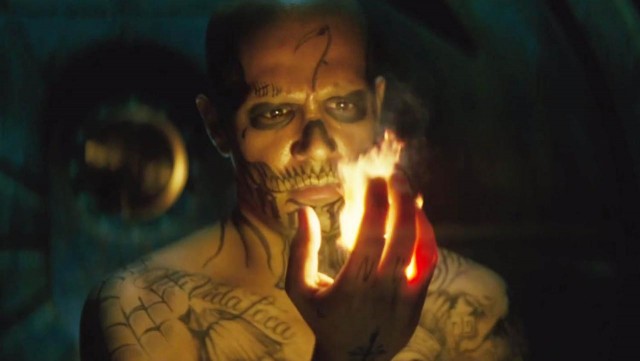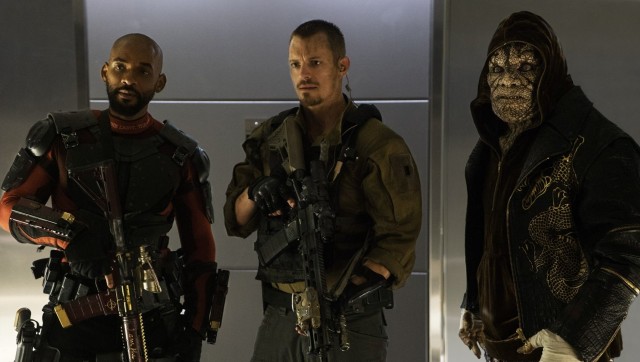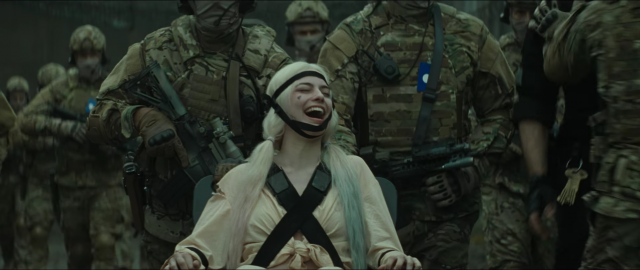A lot of people have criticized the DC Extended Universe, formerly spanning 2013’s Man of Steel and this year’s Batman v Superman: Dawn of Justice, for its supposed bad ideas, in contrast to Marvel’s seemingly tighter-produced, more cohesive Marvel Cinematic Universe. Imagine then the outrageous gamble of an entire movie designed around a very, very bad idea, even in the DC Comics Universe; Assembling a team of some of the world’s most dangerous super-villains, and trying to place them in the government’s control, as an unwitting platoon of black ops agents.
Such is the premise of DC’s Suicide Squad comics, with the team of villains-turned-government assets first making their debut in DC Comics lore in the latter end of the 1980’s, after a non-powered team of the same name was introduced in DC’s 1950’s comics, and the Squad has been an anti-hero staple of the DC Universe ever since its 1980’s re-launch. Before this movie adaptation for the shared DC Extended Universe however, the Suicide Squad was almost entirely unknown to those outside of DC’s fan circles, making Suicide Squad a dark horse offering akin to Marvel’s Guardians of the Galaxy or Ant-Man, and the movie seems to have particularly taken pages from Guardians of the Galaxy in terms of its marketing, presentation and release timing, despite being entirely earthbound in this case. At least this won’t be the team’s first live-action rodeo however, considering that the Suicide Squad did make appearances, with differing rosters of villains, in two of The CW’s well-known DC Universe-inspired television shows, the former Smallville, and the ongoing Arrow.
This big screen turn is the most mainstream and high-profile appearance of the Suicide Squad in history though, and yet again, it’s resulted in highly divisive opinions from critics and DC fans, much like Man of Steel and Batman v Superman: Dawn of Justice before it. As with Batman v Superman: Dawn of Justice earlier this year though, the criticisms that have been leveled at Suicide Squad, while not necessarily incorrect, are also overblown, and seem to be born more out of frustration at DC’s adaptive shortcomings, rather than truly objective criticisms about the movie’s final product. Fact is, if you’re just looking for a cool, stylish popcorn flick with some truly outrageous lead characters, Suicide Squad is pretty entertaining, and one could easily make the case that it’s the DC Extended Universe’s best movie to date, even if just by a hair.
On the other hand though, it does seem evident that the movie suffers from a clashing vision, and the sense that Warner Bros. is still spending far too much time throwing everything at the wall and seeing what sticks, in a desperate effort to frantically craft their own recipe for big screen success throughout the DC Extended Universe, as Marvel already perfected for the Marvel Cinematic Universe’s secret sauce many years ago. To that end, Suicide Squad does more or less have the same main Achilles’ heel as Batman v Superman: Dawn of Justice, in that it’s trying to cram a shared universe down audiences’ throats, without truly allowing its own central idea to fully breathe. As a movie production, there is admittedly much to pick apart in Suicide Squad, but not every flaw truly matters in the grand scheme of things, especially in a darkly deranged movie that is built entirely around a proudly senseless idea in the first place.
The ensemble cast of Suicide Squad gets varying degrees of development, but it all begins with Viola Davis’ Amanda Waller, a ruthless government overseer working for fictional DC Universe organization, A.R.G.U.S., who attempts to convince the U.S. government to approve a very risky idea; Allowing metahuman criminals (strangely, this also includes several non-powered criminals), to be forcibly conscripted as government assets to fight against the growing metahuman menace threatening the DC Extended Universe. Davis’ Waller is also a fantastically intimidating personality to boot, and Davis fully sells her as a woman of infinite ambition and brutality that is not to be trifled with. Davis’ steely, uncompromising performance fully sells that even the powered super-villains would fear her, and I’m very much looking forward to this portrayal of Amanda Waller showing up again in future DC Extended Universe movies.
Among the squad itself however, the ensemble is fairly well-developed, even if some characters are clearly given precedence over others. The actors portraying these personalities can certainly tip you off to that effect, as Will Smith’s Deadshot and Margot Robbie’s Harley Quinn are far and away the most fleshed-out and interesting members of the titular Squad, even having their backstories outlined in fairly solid detail. In fact, Smith’s Deadshot is a surprising standout in the movie, with Smith making a more charismatic, humanized Deadshot than many prior portrayals of the character, but one that is inherently likable, without compromising the ruthless firearm skills and elite assassination capabilities that have always made this character appealing in prior DC media. Smith is the one actor in the movie that seems to perfectly balance stirring tragedy with dark, twisted comedy, and if the plan is to make Smith’s Deadshot the face of potential Suicide Squad sequels, that’s a plan that I, and likely many other people, can easily get behind!
Robbie being a fantastic Harley Quinn is a given too, since she nails the look, personality and playfully insane mannerisms of Harley Quinn in every scene, even if the character would no doubt be even better in a harder, more consistent DC movie. Robbie is clearly having a blast portraying Harley in every scene, and her charming, violently unpredictable behaviour will quickly become infectious and strangely lovable. The scenes where Robbie’s Harley Quinn is able to interact with Jared Leto’s new Joker are particularly fantastic, with the two demonstrating a delightfully twisted relationship that will frustrate audiences to a point, since it seems like something that could provide such an excellent villain anchor in the next solo Batman movie, though these standout scenes are sadly tossed into a potpourri of busily competing character arcs and storylines in Suicide Squad.
This brings me to the first noticeable disappointment in the movie; Jared Leto’s Joker. Leto’s Joker isn’t disappointing because he’s badly-portrayed however. On the contrary, Leto nails the part, providing something of a blend between Jack Nicholson’s playfully wicked prankster-style Joker in 1989’s Batman, and the late Heath Ledger’s soft-spoken, violence-savouring, politically-charged anarchist Joker from 2008’s The Dark Knight, with a street-savvy sense of gangster-style business leanings to inject something entirely new and modern into the character’s latest big screen incarnation. The problem is that Leto’s Joker is barely in the movie’s final theatrical cut, and has clearly had most of his scenes chopped out. He’s tossed into several flashback scenes that purely exist to service the backstory of Harley Quinn, and beyond a couple of filler scenes later in the movie, that’s all the purpose that Leto’s Joker serves. Seriously? It’s a big let-down, especially after the marketing made it sound like Leto’s Joker, who is making his debut in the DC Extended Universe here, had a much larger part than he actually does. Instead, Leto’s great performance feels like an extended tease for an upcoming Batman movie that is inevitably years away from actually being released.
If you were thinking, as many were, that Jared Leto’s Joker was the villain of the movie then, you might be surprised to hear that the actual villain of the movie is Cara Delevingne’s Enchantress, which suddenly makes sense, when you actually study the supernatural foes that the Squad is clearly battling against in the trailers. Delevingne is another performer that is clearly compromised by the material here too. Her Enchantress is very effective at being scary and unhinged, effectively coming off as an unstoppable force of nature that her civilian host, June Moone, is frequently terrified of, and undeniably at the mercy of, despite the government arrogantly thinking that it can weaponize Moone’s power, which is triggered in a transformation whenever she says, “Enchantress.”
The problem though is that Enchantress is inconsistently written, and doesn’t manage to balance the many conflicting elements at play with her personality. Delevingne’s June Moone is fairly sympathetic, but Delevingne portrays Enchantress much more often, who, like I said, is effective at being scary, but also seems to be told to over-act and ham up her performance, in a forced effort to go with the movie trying to be more light-hearted than was probably initially pitched. This draws all the more attention to the fact that utilizing a supernatural villain in the first Suicide Squad movie was probably a mistake, since it’s hard to be afraid of or sympathize with the over-the-top Enchantress when she’s relegated to the same old canned, ridiculous Hollywood plan of making a big portal above a city, and making dead things fight people. Hell, didn’t we already just see that exact villain plot in the Ghostbusters reboot a few weeks ago?!
Another element of Enchantress’ character that could have been fleshed out and made more of an active character challenge, is the angle that Joel Kinnaman’s Rick Flag, the titular Squad’s leader, and a very accomplished military colonel, is sleeping with her, or, more accurately, June Moone, making him especially desperate to stop the movie’s antagonist. In many ways, Flag is the most grounded, relatable character in the movie, and with the possible exception of Deadshot, he also feels the most humanized. Flag is a reactionary character to be sure, with much of his best material leaning on Smith, Davis and/or Robbie, but Kinnaman’s performance is nicely heartfelt, and he does manage to be a credible leader, while helping to ground Suicide Squad in some slight plane of reality.
Jai Courtney is another surprising standout as Captain Boomerang, who stands as a pure gag character that is possibly the most insane member of the Squad, short of Harley Quinn, and considering Courtney’s unfortunate resume, it’s entirely possible that Boomerang is his best character portrayal to date, being lots of fun and effectively badass in all of his lunacy. Courtney’s grimacing wit even manages quite a few funny lines, and provides a promising tease of a re-appearance by Boomerang in the upcoming Flash movie, with Ezra Miller’s Scarlet Speedster even making a small appearance in Suicide Squad at one point. Ben Affleck’s Batman is the only other formerly established DC Extended Universe hero to appear in Suicide Squad, where he mainly factors into flashbacks, though this also gives another interesting re-interpretation of Affleck’s Caped Crusader, who is now seen as a more haunting specter, since he’s being viewed from the perspective of the villains now.
This leaves the personalities that round out the Squad, including Adam Beach’s Slipknot, who actually doesn’t have much screentime and is barely worth mentioning, sadly, Karen Fukuhara’s Katana, a thoroughly badass Japanese fighter with an interesting backstory that is merely hinted at in passing, yet another tease of a more fleshed-out appearance that this Katana hopefully gets in a future DC movie, Adewale Akinnuoye-Agbaje’s Killer Croc, a beastly metahuman of few words that simply seems to be there to highlight how insane Waller’s plan is throughout the runtime, as well as provide occasional muscle, and Jay Hernandez’s Diablo, a pyrokinetic gangbanger who abhors violence and his metahuman abilities. Diablo is another character that’s given quite a bit of humanity, and provides a more grounded perspective from the metahuman side of things, and considering that this powered incarnation of Diablo is a very new character in DC lore, he surprisingly serves as one of the most likable and memorable characters in the entire movie’s ensemble. It would have been better if Suicide Squad could more reliably make up its mind about whether it wants to be grim or uplifting though.
Like Batman v Superman: Dawn of Justice, Suicide Squad is often let down by its rather scattershot storytelling. Suicide Squad’s final product is still ultimately better than that of Batman v Superman: Dawn of Justice, if for no other reason than it’s significantly more fun to watch, but it still feels like the movie is trying to cover too much ground, too fast, and it seems to use up a lot of the story’s best and most enjoyable turns in the first act.
I have to say too, that the first act of Suicide Squad is actually excellent! This is where the movie really fires on all cylinders, establishing the various villains in a deranged, kooky and highly enjoyable way, which will make you wish that the movie had fully committed to being the dark comedy that it initially aims to be. Many of the biggest laughs are in the opening act, and many of the characters’ best subtle developments are also in the opening act, which is why it’s infuriating that the entire movie couldn’t follow that example.
Instead, the pacing of Suicide Squad stops cold when the movie finally drops the characters into Midway City, a recognizable DC Universe locale that serves as the frequent home of Hawkman and Hawkgirl (two superheroes that don’t currently exist in the DC Extended Universe, as far as we know), where the rest of the movie’s events take place. The extended city hike is a lot less interesting than it should be, with a handful of workmanlike action scenes thrown in to wake up audiences every so often, and precious few moments where the characters actually stop and reflect to good effect. In fact, one of the truly great scenes later in the movie simply has the characters sitting in a bar together, talking about what’s going on, and airing their grievances with each other. Suicide Squad would have benefited from a bit more of this effective rapport, since the Squad’s chemistry is kind of uneven. Kinnaman and Smith carry a lot of the actual story material’s appeal, while Robbie does a great job too, but always feels a bit too disconnected from what’s going on, as if she should have been established in a different movie.
What’s left is another Batman v Superman: Dawn of Justice-esque hodgepodge storyline that still feels far too much like design-by-committee. You can tell that Warner Bros. nosed into the movie in several places, trying to lighten up scenes that should have been dark, and trying to darken scenes that should have been more amusing. This feeling gets even worse when you recall that Warner Bros. quite clearly panicked after some of the negative critical and audience reception to Batman v Superman: Dawn of Justice, as much as they tried to covert that up to the press, and Suicide Squad definitely feels like the victim of several creative shake-ups at Warner Bros. and DC during its development, which noticeably makes it lose some of its potential in translation to theatres.
That’s not to say that writer/director, David Ayer’s fundamental story pitch is perfect, since Ayer also makes a few questionable decisions in some places, namely in aiming a bit too high with the movie’s main villain, and shoehorning The Joker into a storyline that didn’t fully do him justice. There’s no excusing the fact that Warner Bros.’ anxiety noticeably tampered with the movie though, and even a lot of regular moviegoing audiences will feel like Suicide Squad is clumsily put together in several places, with several big scenes clearly hacked out, likely to be held for some special edition Blu-Ray release. A good chunk of tonal confusion results from this, naturally, with the movie’s final theatrical cut feeling like two wildly different cuts of the movie were forcibly squished together into one product. This movie really should have committed to being dark or being mischievous, though the latter direction seems to be where Suicide Squad shines most, especially with Man of Steel and Batman v Superman: Dawn of Justice kicking off the DC Extended Universe on a needlessly grim, brooding note beforehand.
(NOTE: The spoiler section, when clicked, discusses Suicide Squad’s bonus mid-credits scene, greater connections to the DC Extended Universe and its future movies, and rumoured DC characters that appear or don’t appear in the movie in the end. It also gives away one of the key character resolutions for a main cast member, and what it likely means for the future.)
There were also a lot of false rumours about DC characters that are featured in Suicide Squad, even if some may have possibly had their scenes cut out. Jesse Eisenberg’s Lex Luthor doesn’t appear in the movie, contrary to rumour, and nor do currently-unseen DC characters like Deathstroke, who were also rumoured. Beyond one cool nod to a key personality from graphic novel, Joker at one point in the movie, there are no surprise DC character appearances that weren’t already given away in the marketing or interviews.
Even in places where his script can stumble, David Ayer still provides a strong, engaging directing job for Suicide Squad. Whenever Warner Bros. isn’t clearly getting in his way, Ayer manages to craft a movie that is action-packed, twisted, and effectively off-the-rails. His fundamental vision feels like something that is truly unlike any prior superhero-themed movie to release before this one, which is why it’s a shame that Suicide Squad doesn’t fully manage to achieve its potential.
Ayer’s direction is often at its best when he’s allowed to really highlight the eccentric world of villains and criminals that Suicide Squad is aiming to spotlight. Ayer gets quite a lot of mileage out of most of the movie’s core characters, who succeed at feeling like true villains and menaces, who are realistically forced into their circumstances, rather than unrealistically volunteering to be good guys, for the most part. Again, the studio’s noticeable meddling does result in a few hokey scenes where the villains act too altruistically, even when all of their former establishment contradicts those actions, but when Ayer is allowed to go full-blown mad with these villainous personalities, he really delivers! The movie’s shocking, thoroughly insane moments are almost always realized wonderfully, and when Suicide Squad aims to make you wince and cringe (in a good way), that’s usually when it feels like a truly great movie.
Where Ayer’s direction becomes a bit more uneven is during some of the more fantastical, flashy scenes, where you can sense that Ayer is a bit out of his depth. The visuals in the movie are certainly good, and more on that in the appropriate section, but for every really cool effects-driven scene that Ayer realizes in this movie, there’s one that feels strangely shot, or strangely framed, or weirdly slowed down for no discernable reason. It feels like the fantastical element of the DC Universe is one that Ayer is a bit less able to handle, and like I said, it’s when Ayer is able to play with the psychologies of the characters, more than their abilities, when his direction is at its strongest. Still, there is quite a bit of effort put into realizing these characters and their appeal, exactly as they’re enjoyed in DC Comics lore, and you won’t get the sense that Ayer is ever butchering the source material, even if he doesn’t fully translate it to the big screen with universal effectiveness either.
For all of the complaints leveled at Batman v Superman: Dawn of Justice this past Spring, it was difficult to complain about the movie’s superb music score. Interestingly, the same is true of Suicide Squad, which has some noticeable flaws in its final product, but at least features a pretty amazing soundtrack! The soundtrack is rife with classic rock and hip-hop tunes like, “Bohemian Rhapsody”, “Without Me” and, “You Don’t Own Me”, to the point where the movie’s soundtrack is practically a character in its own right. Warner Bros. is pretty transparently chasing Marvel’s Guardians of the Galaxy here, which characterized itself with a soundtrack packed with 80’s pop music (and one that delivered a chart-dominating movie soundtrack for the first time in decades), but it doesn’t change the fact that Suicide Squad’s music suite is still great, being an edgy, fun and unhinged combination of original compositions and licensed anthems to insanity and nihilism, and one that is well worth taking home for movie music enthusiasts, especially if they’re DC fans!
The rest of the audio work also really pops in a satisfying way, with Suicide Squad boasting a lot of slick sound stylings that make its action shine and its mayhem amuse, especially in specialty formats like IMAX. The action is pretty fantastical for the most part, but there is a powerful punch to it, with the accentuated sounds of blades, guns, flames and everything else all sounding perfectly brutal, though never to the point where it compromises the movie’s PG-13 rating. Some of the bullet-time effects can be a bit much in a few scenes, though that’s fairly minor, especially when the movie packs the expected audio polish of any major superhero-themed blockbuster worth its salt.
It’s not quite on the visually spectacular level of Batman v Superman: Dawn of Justice, but Suicide Squad still comes packing no shortage of high-quality visual effects! The Enchantress effects in particular are pretty amazing, with the character genuinely feeling like a haunting, sinister spirit that is thousands of years old, and has absolutely zero regard for human life or decency! Some of Enchantress’ magic is a little iffy-looking and blatantly CG’d, especially in regards to the big obligatory Hollywood sky portal, but the mutant minions of Enchantress look awesome, as does her ancient monstrous brother, Incubus, a rather obscure DC Comics villain who serves as something of a secondary antagonist in the movie, even if he’s little more than a mindless brute.
The other presentation-related effects, which seem to have been largely put in by order from Warner Bros., look nicely eye-catching too, and much of the intense visual directing during scenes involving trauma and flashbacks turned out pretty exceptionally, especially in the case of Harley Quinn. In fact, the visual presentation sort of gives you an idea of which scenes were demanded by Warner Bros., and which scenes were part of David Ayer’s original, supposedly darker vision for Suicide Squad. The Warner Bros.-mandated scenes are a lot more vibrant and eye-popping, along with the proudly trippy credits sequences, while it seems like the scenes where Ayer was left to do his thing are a little more muted and dark, akin to the previous DC Extended Universe movies’ slightly tinted cinematography. The colourful presentation is definitely more distinct, and this might have been the biggest instance where Warner Bros. was right to make a drastic change to Suicide Squad, since the colourful imagery also contributed to a pretty amazing marketing campaign leading up to this movie’s release.
As for the 3D and IMAX presentations, they’re both at least decent, though the former is definitely better than the latter. Things like the Enchantress effects and battle carnage are definitely given added ‘pop’ when you see Suicide Squad in 3D, which is positioned more to add to the fun than up the immersion. Still, the 3D is pretty enjoyable if you like 3D movies, and is well worth paying the added price for, even if the movie is certainly not crippled when you just watch it flat in 2D. As for the IMAX presentation, it does very little with the IMAX screen, and is well beneath the IMAX quality of Batman v Superman: Dawn of Justice, which is rather disappointing. The IMAX 3D cut does at least boost the audio, and makes the already good 3D just a bit better, but the IMAX 3D cut of Suicide Squad isn’t fully worth the cash. For the best and most enjoyable experience that isn’t too hard on your wallet, I would recommend the standard digital 3D cut, which adds an entertaining boost to the visual effects, and doesn’t dampen the audio enough to be that noticeable.
Suicide Squad sadly ends up being a frustrating mixed bag in the end, despite also being a clear step in the right direction for the DC Extended Universe. The movie is quite possibly a victim of being released too early in the DC Extended Universe’s life cycle, since a more consistent and darkly comic movie that could have piggybacked off of the story fallout of the ensemble Justice League movies might have made for a more successful final product. Of course, it’s also true that the big creative shake-ups in the wake of Batman v Superman: Dawn of Justice during this movie’s production did some clear damage to the project as well, dragging down the envelope-pushing storyline of a good movie, and making Suicide Squad’s final product more uneven than it should be.
For all of the movie’s flaws though, primarily its confused storytelling and handful of under-utilized characters, Suicide Squad is still plenty entertaining, and DC fans, superhero enthusiasts and general lovers of colourful, action-packed blockbusters will enjoy it, if they don’t try too hard to pick it apart. The movie is definitely not perfect, but like Batman v Superman: Dawn of Justice, it’s also nowhere near the travesty that some critics and fanboys would have you believe it is, especially since Suicide Squad finally and mercifully taps into the DC Extended Universe’s sense of humour, which is more than can be said about the gloomy Man of Steel and the extra-gloomy Batman v Superman: Dawn of Justice.
So, should you go and see this eccentric tale of super-villain community service? Well, it depends on what you’re looking for. If you’re looking to be impressed, then you’ll probably be disappointed with some of the movie’s faulty production elements, albeit not really angry, if your expectations are realistic. If you’re looking to be entertained, then Suicide Squad will entertain you, especially if you have a particular taste for superhero-themed media. If you treat the movie as a simple, fun popcorn flick, Suicide Squad is one of this Summer’s more memorable blockbusters, if definitely not its best.
There is a far better movie screaming to get out of the mess that Warner Bros. sometimes leaves behind in an effort to ‘fix’ their shared universe though. Thus, I hope David Ayer comes back for a Suicide Squad 2, and makes the superior sequel that DC enthusiasts deserve. Until then though, we have a Suicide Squad movie that is very much like its black-hearted protagonists; Clearly imperfect, and blatantly unreliable, but still cool and capable enough to get the job done.

